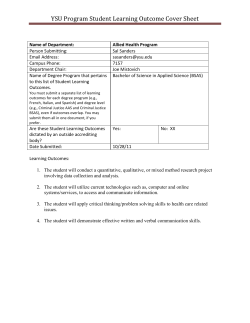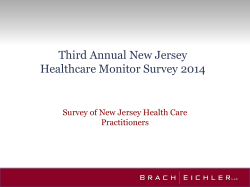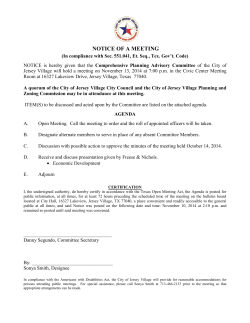
Chapter 20 - myPatriotEducation.com
Chapter 20 Drug and Alcohol Emergencies © 2008 by Pearson Education, Inc. Upper Saddle River, New Jersey CHAPTER Prehospital Emergency Care, 8th Ed. Mistovich/Karren/Hafen Topics 20 Drug and alcohol emergencies Assessment and care Managing a violent drug or alcohol patient Enrichment © 2008 by Pearson Education, Inc. Upper Saddle River, New Jersey CHAPTER Prehospital Emergency Care, 8th Ed. Mistovich/Karren/Hafen Introduction 20 Drugs and alcohol are abused by many people, in a variety of ways. Additionally, it is a widespread finding present throughout all levels of society. © 2008 by Pearson Education, Inc. Upper Saddle River, New Jersey Prehospital Emergency Care, 8th Ed. Mistovich/Karren/Hafen CHAPTER Drug and Alcohol Emergencies 20 Drug and alcohol terms: – Drug abuse – Drug overdose – Drug withdrawal © 2008 by Pearson Education, Inc. Upper Saddle River, New Jersey CHAPTER Prehospital Emergency Care, 8th Ed. Mistovich/Karren/Hafen Assessment and Care 20 Assessment and care: scene size-up – Ensure scene safety – Note any actual or potential weapons – Take BSI precautions – Scan for evidence of drug or alcohol abuse – Try to identify the drug(s) involved © 2008 by Pearson Education, Inc. Upper Saddle River, New Jersey CHAPTER Prehospital Emergency Care, 8th Ed. Mistovich/Karren/Hafen Assessment and Care 20 Assessment and CARE: INITIAL ASSESSMENT – Form a general impression – Take cervical spinal precautions as needed – If needed, open the airway manually and assess for patency – Assess next for breathing adequacy or inadequacy; utilize high flow oxygen – Assess circulatory status – Prioritize the patient’s clinical condition © 2008 by Pearson Education, Inc. Upper Saddle River, New Jersey Prehospital Emergency Care, 8th Ed. Mistovich/Karren/Hafen CHAPTER Assessment and Care 20 © 2008 by Pearson Education, Inc. Upper Saddle River, New Jersey CHAPTER Prehospital Emergency Care, 8th Ed. Mistovich/Karren/Hafen Assessment and Care 20 Indications of a “high priority” patient © 2008 by Pearson Education, Inc. Upper Saddle River, New Jersey CHAPTER Prehospital Emergency Care, 8th Ed. Mistovich/Karren/Hafen Assessment and Care 20 Indications of a “high priority” patient © 2008 by Pearson Education, Inc. Upper Saddle River, New Jersey Prehospital Emergency Care, 8th Ed. Mistovich/Karren/Hafen CHAPTER Assessment and Care 20 Indications of a “high priority” patient © 2008 by Pearson Education, Inc. Upper Saddle River, New Jersey CHAPTER Prehospital Emergency Care, 8th Ed. Mistovich/Karren/Hafen Assessment and Care 20 Indications of a “high priority” patient © 2008 by Pearson Education, Inc. Upper Saddle River, New Jersey CHAPTER Prehospital Emergency Care, 8th Ed. Mistovich/Karren/Hafen Assessment and Care 20 Indications of a “high priority” patient © 2008 by Pearson Education, Inc. Upper Saddle River, New Jersey Prehospital Emergency Care, 8th Ed. Mistovich/Karren/Hafen CHAPTER Assessment and Care 20 Focused history and physical exam – History and physical exam – Baseline vitals – SAMPLE history Responsive patient Unresponsive patient Needle track marks on the extremities—a sign of injected-drug use. © 2008 by Pearson Education, Inc. Upper Saddle River, New Jersey Prehospital Emergency Care, 8th Ed. Mistovich/Karren/Hafen CHAPTER Assessment and Care 20 Focused history and physical exam – “Huffers” – “Pharming party” © 2008 by Pearson Education, Inc. Upper Saddle River, New Jersey Prehospital Emergency Care, 8th Ed. Mistovich/Karren/Hafen CHAPTER Assessment and Care 20 Signs and symptoms – – – – – © 2008 by Pearson Education, Inc. Upper Saddle River, New Jersey CNS stimulants CNS depressants Narcotics Hallucinogens Volatile inhalants Prehospital Emergency Care, 8th Ed. Mistovich/Karren/Hafen CHAPTER Assessment and Care 20 Emergency medical care – Establish and maintain an airway – Ventilate if needed, apply oxygen – Position the patient – Maintain body temperature – Assess BGL – Use restraints when necessary © 2008 by Pearson Education, Inc. Upper Saddle River, New Jersey CHAPTER Prehospital Emergency Care, 8th Ed. Mistovich/Karren/Hafen Assessment and Care 20 Detailed and ongoing examination – Detailed exam enroute, time and condition allowing – Ongoing exam completed according to patient acuity © 2008 by Pearson Education, Inc. Upper Saddle River, New Jersey CHAPTER Prehospital Emergency Care, 8th Ed. Mistovich/Karren/Hafen Managing a Violent Patient 20 Managing a violent drug or alcohol patient – Use the talk-down technique for those experiencing a “bad trip” © 2008 by Pearson Education, Inc. Upper Saddle River, New Jersey Prehospital Emergency Care, 8th Ed. Mistovich/Karren/Hafen CHAPTER Enrichment 20 Drug withdrawal – Common to those people whose drug use has led to a tolerance, which means they need a larger amount of drug for the same effect © 2008 by Pearson Education, Inc. Upper Saddle River, New Jersey CHAPTER Prehospital Emergency Care, 8th Ed. Mistovich/Karren/Hafen Enrichment 20 Drug withdrawal – Signs and symptoms of drug withdrawal usually begin about the time the next dose is needed – Symptoms peak at 48–72 hours © 2008 by Pearson Education, Inc. Upper Saddle River, New Jersey CHAPTER Prehospital Emergency Care, 8th Ed. Mistovich/Karren/Hafen Enrichment 20 Alcoholic syndrome – This syndrome results from true addiction to alcohol as the patient’s drinking problem progresses over time © 2008 by Pearson Education, Inc. Upper Saddle River, New Jersey Prehospital Emergency Care, 8th Ed. Mistovich/Karren/Hafen CHAPTER Enrichment 20 Alcoholic syndrome – Alcoholics are prone to many common illnesses © 2008 by Pearson Education, Inc. Upper Saddle River, New Jersey CHAPTER Prehospital Emergency Care, 8th Ed. Mistovich/Karren/Hafen Enrichment 20 © 2008 by Pearson Education, Inc. Upper Saddle River, New Jersey CHAPTER Prehospital Emergency Care, 8th Ed. Mistovich/Karren/Hafen Enrichment 20 Alcoholic syndrome © 2008 by Pearson Education, Inc. Upper Saddle River, New Jersey Prehospital Emergency Care, 8th Ed. Mistovich/Karren/Hafen CHAPTER Enrichment 20 Withdrawal syndrome – Occurs after a period of abstinence, or inadequate consumption given their physiological dependence – Occurs in 4 stages © 2008 by Pearson Education, Inc. Upper Saddle River, New Jersey CHAPTER Prehospital Emergency Care, 8th Ed. Mistovich/Karren/Hafen Enrichment 20 © 2008 by Pearson Education, Inc. Upper Saddle River, New Jersey CHAPTER Prehospital Emergency Care, 8th Ed. Mistovich/Karren/Hafen Enrichment 20 © 2008 by Pearson Education, Inc. Upper Saddle River, New Jersey Prehospital Emergency Care, 8th Ed. Mistovich/Karren/Hafen CHAPTER Enrichment 20 © 2008 by Pearson Education, Inc. Upper Saddle River, New Jersey CHAPTER Prehospital Emergency Care, 8th Ed. Mistovich/Karren/Hafen Enrichment 20 Delirium Tremens (DTs) – Severe, life threatening condition, with a 5–15% mortality rate – Occurs 1–14 days following last drink, but most commonly presents within 2–5 days © 2008 by Pearson Education, Inc. Upper Saddle River, New Jersey CHAPTER Prehospital Emergency Care, 8th Ed. Mistovich/Karren/Hafen Enrichment 20 Special considerations – PCP – Cocaine – Huffing – Methamphetamines © 2008 by Pearson Education, Inc. Upper Saddle River, New Jersey Prehospital Emergency Care, 8th Ed. Mistovich/Karren/Hafen
© Copyright 2024









